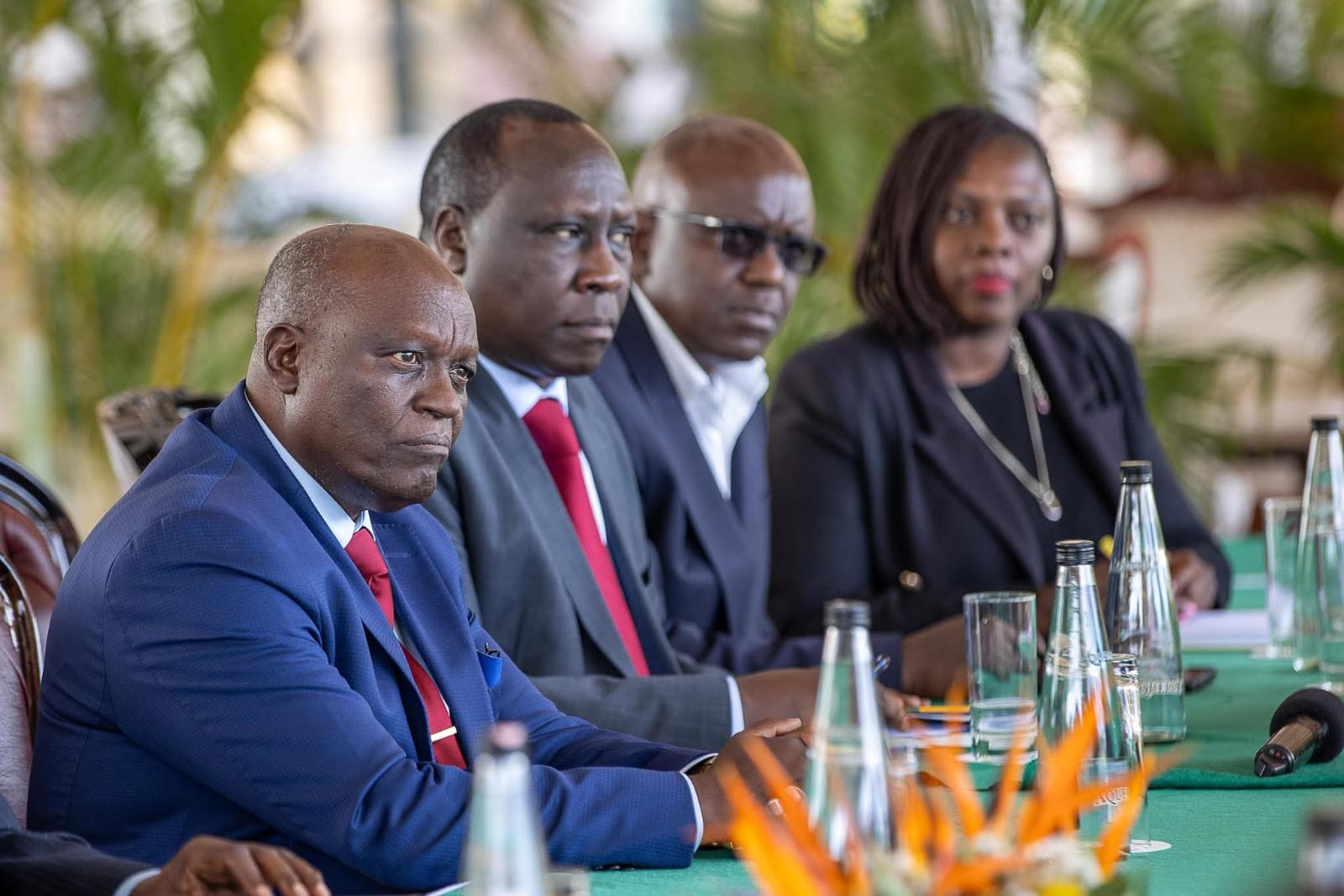By The Weekly Vision Reporter
Agriculture and Livestock Development Cabinet Secretary Mutahi Kagwe has defended plans to lease the Pyrethrum Processing Company of Kenya (PPCK), insisting that it is the only viable way to revive the ailing parastatal. Appearing before the Senate plenary recently, the CS said the Ministry was working jointly with the National Treasury to implement the lease plan. He disclosed that PPCK’s current financial performance is unsustainable, generating only KSh 35 million annually and, in exceptional years, up to KSh 60 million.
Mr Kagwe told the senators that the company not only lacks adequate operational resources but has also received no budgetary allocation for research, a critical requirement for reviving the pyrethrum value chain. He revealed that PPCK is saddled with KSh 3.5 billion in debt, comprising supplier arrears and staff pension obligations, and a further KSh 10 million owed to farmers for deliveries made between August and October.
He assured the House that the government would clear the farmers’ arrears immediately. The Cabinet Secretary informed senators that the Agriculture and Food Authority (AFA) is regulating all stakeholders to ensure prompt payment to farmers based on pyrethrum content. Although PPCK had adopted an advance-payment model in principle, cash-flow constraints have prevented its implementation.
“The advance is meant to cushion growers and enable them to manage agronomic practices, but this is not happening due to cash-flow constraints,” Mr Kagwe said, adding that resolving the issue remains central to stabilising the sector and encouraging farmers to resume pyrethrum cultivation.
On financial support, he revealed that the Government allocated KSh 105 million to PPCK in the 2024/25 financial year and KSh 125 million in the current financial year to settle debts, purchase seeds, propagate planting materials and fund extension services. He conceded, however, that these allocations were insufficient to fully revive the industry, noting that the funds were “not adequate to revive the pyrethrum sector” but affirmed that the Ministry was doing its best within available resources.
Mr Kagwe outlined a series of policy and regulatory reforms aimed at revitalising Kenya’s once-lucrative pyrethrum industry, which has suffered years of declining production and historical challenges for farmers. He insisted that ongoing interventions were gradually restoring confidence in the sub-sector, formerly one of Kenya’s leading foreign-exchange earners. The CS was responding to questions by Kisumu Senator Prof Tom Ojienda, who sought details on the status of pyrethrum farming, market prospects and the future of the sub-sector.
On pyrethrum farming in Homa Bay County, Mr Kagwe stated that the county does not meet the ecological requirements for the crop and therefore has no active production. He explained that the county’s altitude (1,163–1,219 metres above sea level), rainfall (700–800 mm) and temperatures (17–34 °C) are unsuitable.“Pyrethrum performs best at altitudes of 1,700–3,000 metres, in well-drained volcanic soils, with annual rainfall above 800 mm and sustained cool temperatures below 18 °C to trigger proper flowering,” he said.
He added that this position had been confirmed in writing by the Homa Bay County Government through a letter from the Deputy Governor dated 28 May 2025. Suitable pyrethrum-growing counties remain concentrated in Kenya’s highland belt, including parts of the North Rift, South Rift, Central Kenya, Eastern and select counties in the Lake Region Economic Bloc, such as Kisii and Nyamira.
On sectoral reforms, the CS said the Government is prioritising distribution of high-quality, clean planting materials and has already supplied millions of seedlings, tissue-culture plantlets and clonal materials to counties including West Pokot, Elgeyo Marakwet, Nyandarua, Nakuru and Kericho. He highlighted public-private partnerships with firms such as Botanical Extracts, Kentegra Biotechnology and Africhem Technologies, which are investing in processing and commercialisation.
On access to certified plantlets and extension services, Mr Kagwe said the Ministry is expanding tissue-culture multiplication at laboratories in Muguga and Molo, while standardised training manuals are guiding extension officers. Regarding export markets, he said the draft Crops (Pyrethrum) Regulations 2024 are being finalised to ensure compliance with international standards, particularly those of the United States and the European Union.
PPCK’s membership in the Pyrethrum Joint Venture continues to support regulatory compliance. The CS noted that PPCK has registered and commercialised seven pyrethrum-based products for animal health, public health, agricultural and industrial use. The planned Special Economic Zones are expected to attract more private processors through incentives and affordable industrial space.
Responding to supplementary questions from Senators Prof Ojienda, Enoch Wambua (Kitui), George Mbugua, Daniel Maanzo (Makueni) and Eddy Oketch (Migori), Mr Kagwe acknowledged that no consistent funding has ever been allocated for pyrethrum research owing to chronic budgetary constraints.





